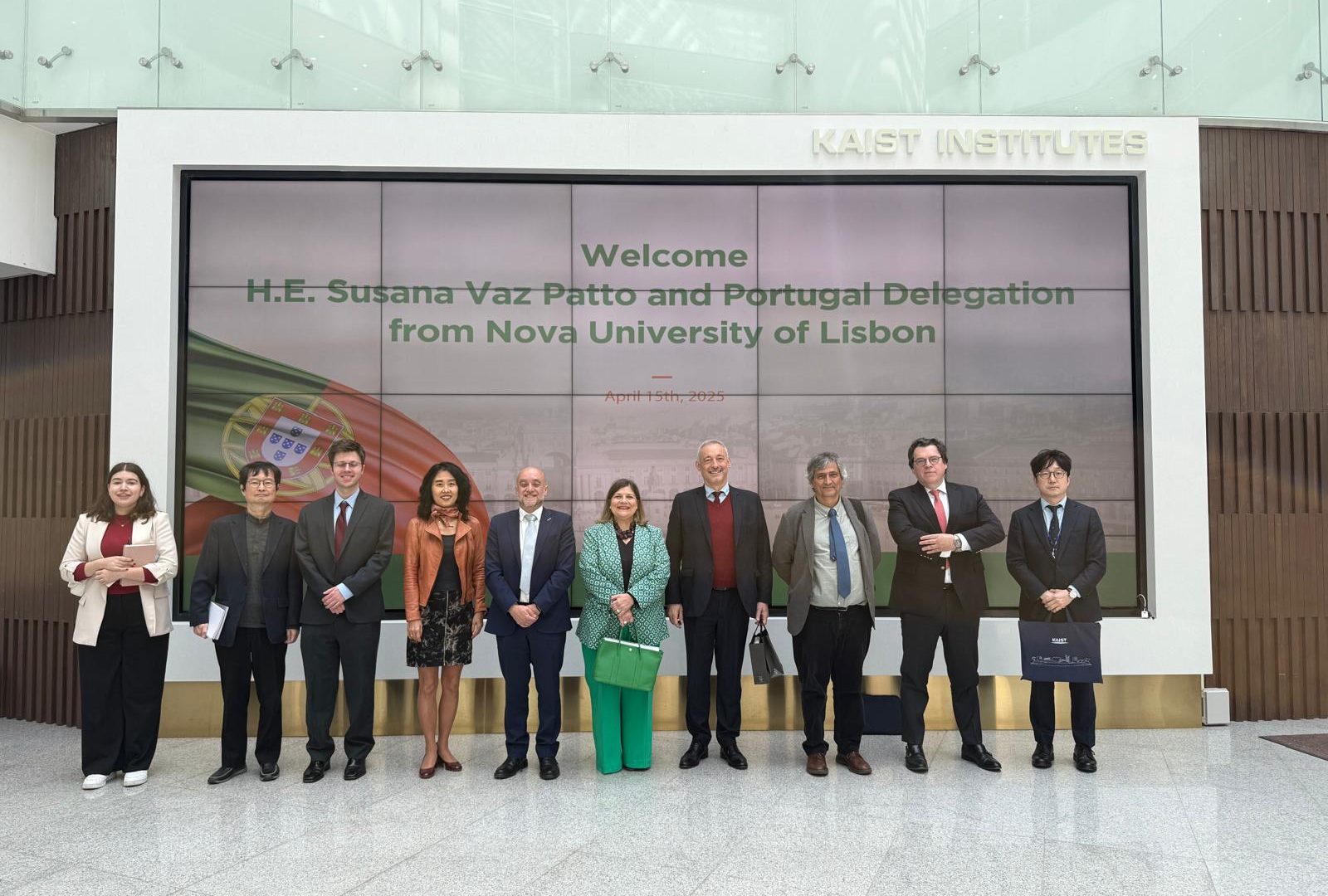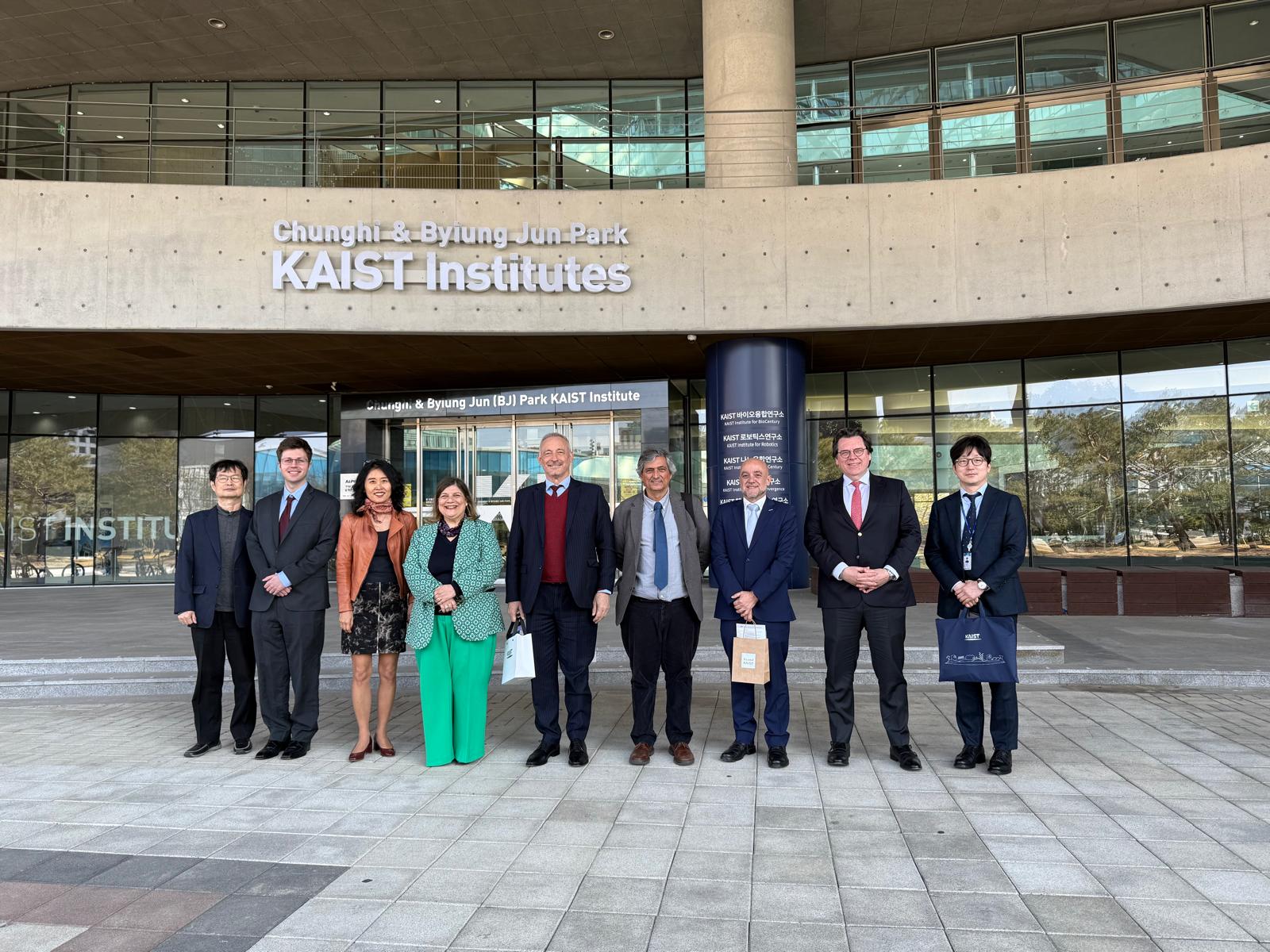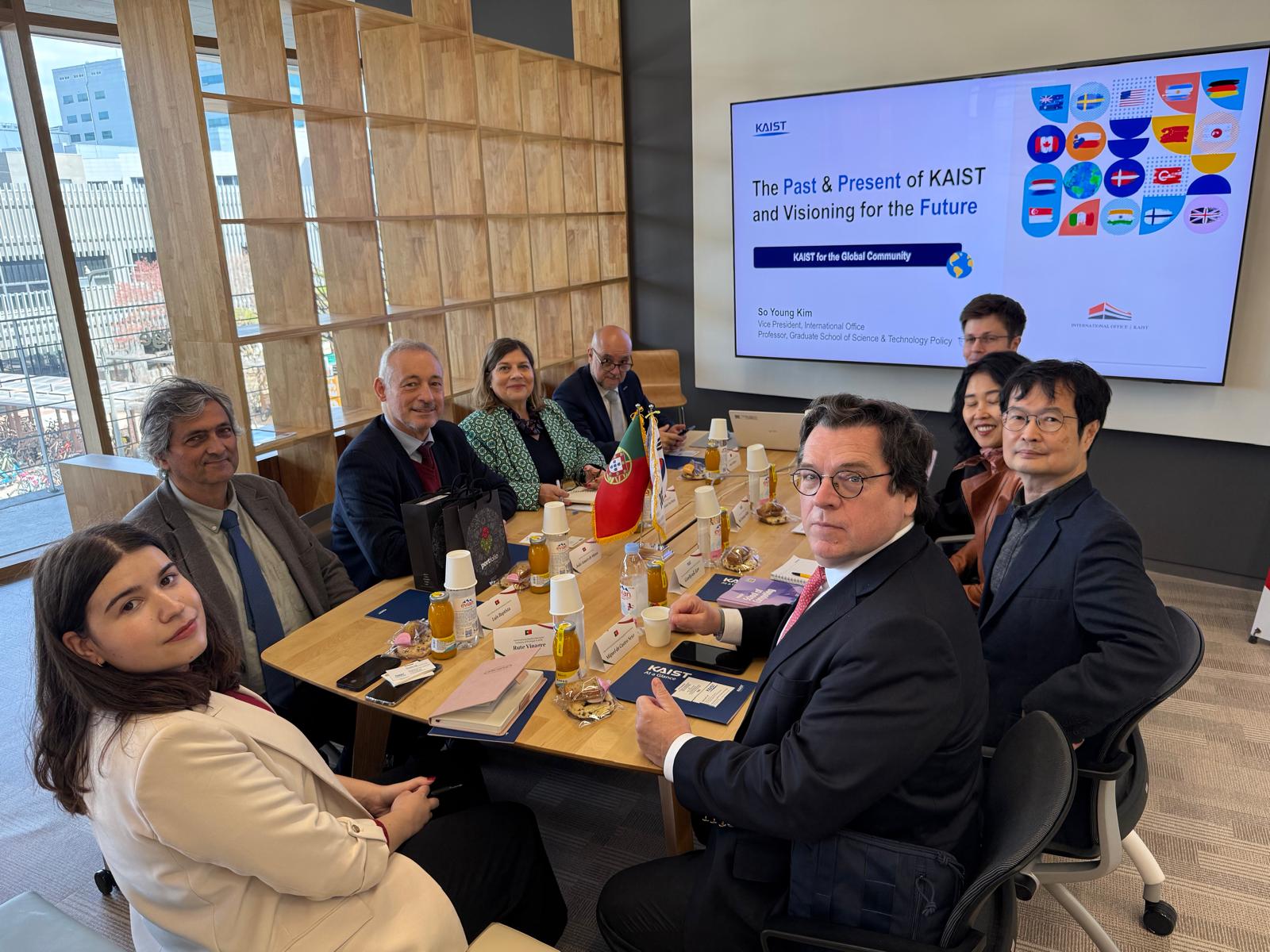Separated by almost 10,000 kilometres, South Korea and Portugal occupy opposite ends of the territory also known as Eurasia, but they share surprising similarities – a close territorial proximity and a historical relationship with the sea – and relations between the two countries date back to the 16th century, when Portuguese captain Domingos Monteiro became the first Westerner to reach the Korean Peninsula. More recently, in 2021, they will celebrate the 60th anniversary of the establishment of diplomatic relations.
It is in this context of affinity and cooperation that a delegation from NOVA University Lisbon will make an institutional visit to South Korea between 15 and 18 April, with the aim of strengthening cooperation in teaching and research.
The delegation will be led by João Amaro de Matos, Vice Rector for Teaching and International Development, and will include the Directors Miguel de Castro Neto (NOVA IMS), José Alferes (NOVA FCT) and Luís Baptista (NOVA FCSH). The mission is supported by the Portuguese Embassy in Seoul.
During the institutional mission, the NOVA delegation will meet with six leading South Korean higher education institutions. On 15 April, the delegation will visit the Korea Advanced Institute of Science & Technology (KAIST). The following day, 16 April, a general cooperation agreement will be signed with Hankuk University of Foreign Studies (HUFS) in the morning and another agreement with Sungkyunkwan University (SKKU) in the afternoon. On 17 April, the delegation will go to Kyungpook National University (KNU), a partner of the European alliance EUTOPIA, of which NOVA is a member, and the visit will end on 18 April with meetings in the morning at the King Sejong Institute Foundation (SJIF), including a meeting with the Secretary General, and in the afternoon at the University of Seoul (UoS), where a cooperation agreement will also be signed. The agenda also includes an official dinner at the Portuguese Embassy.
With this visit, NOVA University Lisbon reaffirms its commitment to an active presence in Southeast Asia and investment in cooperation networks that enhance the mobility of students and researchers, joint scientific development and cultural exchange.



